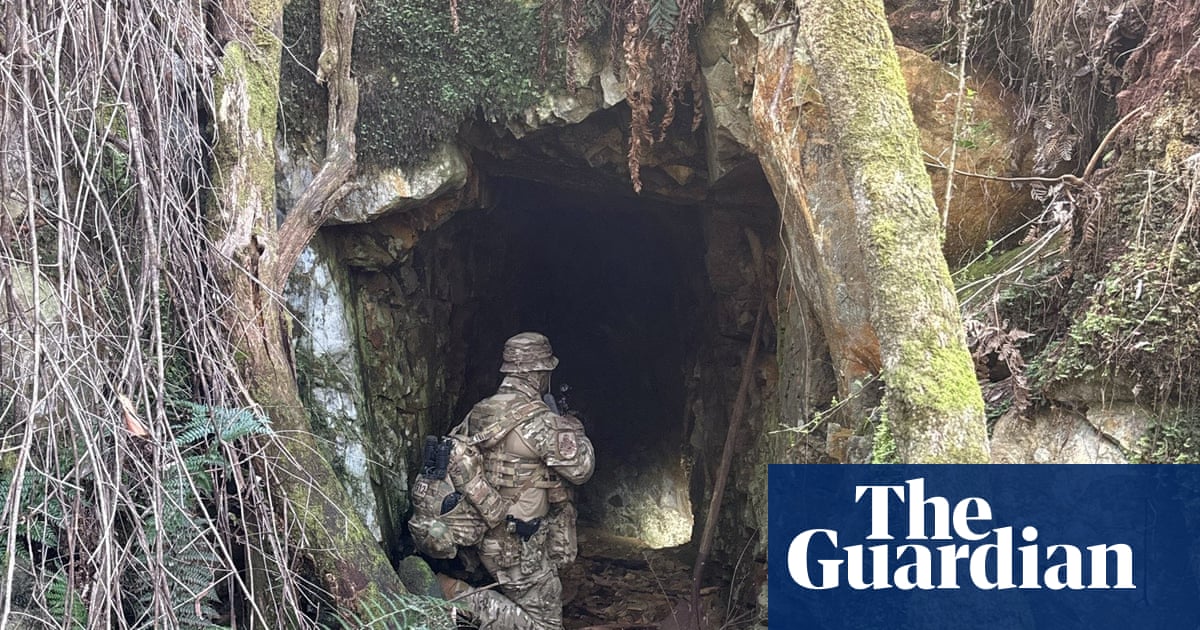Victorian authorities have lifted travel restrictions in the Porepunkah area, days after mounting Australia’s “largest ever” tactical policing operation to sweep the rugged bushland searching for fugitive Dezi Freeman.
Suspected police killer Freeman has been sought since 26 August, when he allegedly shot and killed two officers who were executing a search warrant at his residence in Victoria’s north-east.
For more than two weeks, travel warnings have been in place restricting movement in and around the Porepunkah area. A $1m reward has been issued for information leading to Freeman’s capture. There have been 1,100 tips to date.
“Today we say to the community of Victoria, we are making a slight lift in the travel warnings for the Porepunkah area,” the state’s acting deputy police commissioner Russell Barrett told reporters on Sunday.
Sign up: AU Breaking News email
“Our change is to allow the community to return to a state of normality. We are saying that people can return to that area … [but] the [Mount Buffalo national] park remains closed [and] our search efforts remain focused on that area.”
The official advice now states: “Given the extensive searches undertaken since 26 August, the advice to avoid travelling to Porepunkah has been lifted. Victoria police advises those in the area to remain vigilant and report any suspicious behaviour to triple zero.”
Friday involved the largest tactical policing operation in Australia. Photograph: Victoria police
On Friday, more than 125 specialist officers conducted the country’s “largest ever tactical policing operation” in the inhospitable terrain around Freeman’s property, Barrett said.
The search included officers seconded from all Australian states and New Zealand.
“This included extremely rugged areas,” Barrett said.
“They were crawling through caves. They were traversing rivers and falls. They were searching plantations and gorges in an effort to find Freeman.
“The search continues. Overall, we’ve searched hundreds of properties, with and without a warrant. Made our way through abandoned structures. We’ve searched mineshafts … [and] huts. Our resolve to find Freeman does not change.”
skip past newsletter promotion
Sign up to Breaking News Australia
Get the most important news as it breaks
Privacy Notice: Newsletters may contain information about charities, online ads, and content funded by outside parties. If you do not have an account, we will create a guest account for you on theguardian.com to send you this newsletter. You can complete full registration at any time. For more information about how we use your data see our Privacy Policy. We use Google reCaptcha to protect our website and the Google Privacy Policy and Terms of Service apply.
after newsletter promotion
The operation involved climbing into caves, gorges and mineshafts. Photograph: Victoria police
Barrett said the terrain was incredibly difficult and dangerous.
“We are looking for a person who is [allegedly] armed [and] dangerous,” he said. “Every step must be taken really, really carefully.”
Since Freeman, also known as Desmond Filby, fled into the bush, speculation has swirled around how he has managed to hold out in the harsh alpine terrain.
Police have acknowledged there could be people harbouring or helping him in the community. Local residents and experts have speculated that he may be hiding down a mineshaft or in an underground bunker.
Barrett was asked whether the decision to ease travel warnings meant police believed Freeman had moved on from the nearby area.
“We are open to all options,” Barrett said. “He may still be in that area … he may be harboured, or he may be dead.”
Barrett said police had been “incredibly conscious of the impact the operation has on the local community”.
“We’re talking to them about that all the time. We’re trying to find that balance.”

